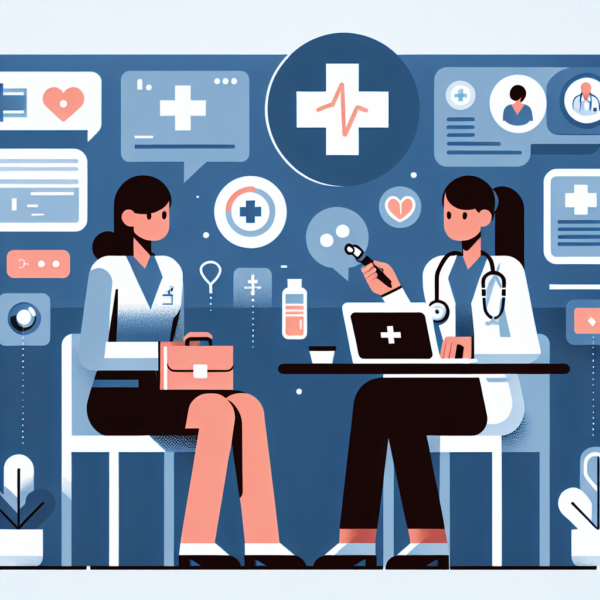Safety In A Medical Assistant Job

The Critical Importance of Safety Skills in Medical Assistant Roles
The role of a Medical Assistant is critical in providing healthcare services, and a vital component of the job description is the emphasis on safety skills. Whether its ensuring the sterilization of medical equipment, properly disposing of hazardous materials, or maintaining a clean and hazard-free clinical environment, safety skill in a Medical Assistant job description cannot be overstated.
Safety skills are highly valuable in the job market, especially within healthcare where they are directly tied to patient well-being and the prevention of healthcare-associated infections (HAIs). Medical Assistants with strong safety skills are sought after by employers to reduce risks, comply with regulations, and create a secure environment for patients and staff alike.
Understanding the Context and Variations of Safety Skills in Healthcare
The application of safety skills can range from general practices like hand hygiene to specialized waste disposal or emergency protocols within various healthcare settings, such as hospitals, clinics, and private practices. These skills ensure compliance with Occupational Safety and Health Administration (OSHA) standards and other regulatory bodies.
At the entry-level, a Medical Assistants safety responsibilities might focus on day-to-day tasks such as cleaning exam rooms. Mid-level roles may encompass the management of safety guidelines and training newer staff. Senior positions could involve oversight of safety policies and ensuring regulatory compliance across larger healthcare facilities.
Real-World Applications and Success Stories of Safety Skills
Mastery of safety skills can lead to recognition and career progression. Medical Assistants who have implemented innovative safety measures or enhanced safety training programs often find themselves in line for advancement to supervisory roles.
Effectively Showcasing Your Safety Skills to Potential Employers
To demonstrate your safety skills to potential employers, you can create a portfolio that includes certifications, examples of safety protocols you have contributed to, and any recognition you have received for safety-related achievements.
Exploring Career Pathways Enhanced by Safety Skills
The development of safety skills can lead to positions in healthcare management, occupational health, or roles that specialize in healthcare compliance and public health.
Combining safety skills with knowledge in healthcare regulations, infection control, and patient care can greatly enhance career opportunities and development. Adding CPR and Basic Life Support (BLS) certifications will further boost a Medical Assistants qualifications. The American Heart Association provides BLS courses: BLS Training.
Jobalope can you help you customize the perfect cover letter for any job – add your resume and the job description to our cover letter generator and you’ll get a personalized output to wow any hiring manager.
Expert Insights on the Importance of Safety Training in Healthcare
Interviews with experienced healthcare professionals emphasize the ongoing need for safety training and awareness. Establishments with robust safety cultures tend to produce better patient outcomes and lower staff turnover rates.
Current Trends in Safety Practices within the Healthcare Industry
Current trends in safety within healthcare include the implementation of electronic health records (EHR) for better patient data management and the use of personal protective equipment (PPE) to safeguard against infectious diseases.
Methods for Measuring Proficiency in Safety Skills
Opt for self-assessment tools and checklists that are in line with the latest standards provided by organizations like the Centers for Disease Control and Prevention (CDC) and OSHA.
Looking to build a resume that will help you compete in today’s tough job market? Jobalope’s resume tool will analyze your resume and any job description and tell you exactly how to take it to the next level.
Certifications and Endorsements to Validate Safety Skills
Certifications in healthcare safety, such as the Certified Medical Assistant (CMA) and Certified Clinical Medical Assistant (CCMA), can validate your skills and commitment to safety practices. The National Healthcareer Association (NHA) provides information on obtaining these credentials: NHA Credentials.
Maintaining and Continuously Updating Your Safety Skills
To stay current with safety practices, regularly attend continuing education courses, webinars, and workshops, and keep abreast of updates from authoritative healthcare organizations.
Conclusion and Strategic Next Steps for Enhancing Safety Skills
A strong emphasis on safety skill in a Medical Assistant job description signifies the priority healthcare providers place on risk reduction and quality care. To develop or enhance this skill, consider immediate actions like enrolling in safety training programs or obtaining relevant certifications to bolster this crucial competency.
Category and Job
Skills
- Acute care in a Medical Assistant Job
- Administration in a Medical Assistant Job
- Case management in a Medical Assistant Job
- CPR in a Medical Assistant Job
- Documentation in a Medical Assistant Job
- FDA in a Medical Assistant Job
- Logistics in a Medical Assistant Job
- Medical device in a Medical Assistant Job
- On-call in a Medical Assistant Job
- Ordering in a Medical Assistant Job
- Patient care in a Medical Assistant Job
- Policies in a Medical Assistant Job
- Public health in a Medical Assistant Job
- Public policy in a Medical Assistant Job
- Safety in a Medical Assistant Job
- Therapeutic care in a Medical Assistant Job